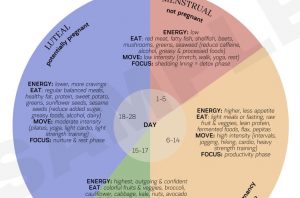
In recent years, Nigeria has witnessed a startling surge in the demand for cosmetic surgeries, particularly those focused on enhancing the breasts and buttocks. This growing patronage raises questions regarding its motivations, sustainability amidst economic challenges, financial implications, potential health risks, and its multifaceted impacts on individuals, communities, and governmental bodies.
1. The Quest for Perfection: Undoubtedly, the rise in cosmetic surgeries can be attributed to the prevailing societal obsession with physical perfection. A culture that glorifies curvaceous figures heightens the aspirations of many individuals to attain idealized beauty standards.
2. Escaping Economic Realities: Surprisingly, even amid economic difficulties, Nigerians continue to invest in these procedures. The motivation appears to be an escape from economic challenges, much like a temporary respite from the harsh realities of their everyday lives. Most believe that if they do it they can marry a wealthy Man.
3. Monetary Considerations: The costs of cosmetic surgeries vary depending on the complexity and location of the procedure. Typically, breast augmentation can cost anywhere from 1.5 million to 3 million Naira, while buttock enhancement procedures range from 1 million to 2.5 million Naira.
4. Health Risks: While cosmetic surgeries promise desirable outcomes, it is crucial to acknowledge the potential side effects. Infections, scarring, implant ruptures, and even psychological disorders like body dysmorphia may arise from these procedures, leading to devastating consequences for individuals seeking the perfect silhouette.
5. Individual, Community, and Governmental Implications: At an individual level, cosmetic surgeries may enhance self-confidence, but they also perpetuate unrealistic beauty standards, fostering insecurities among those unable to afford such procedures. On a community scale, the emphasis on outward appearances may overshadow intellectual and character-based qualities. The government faces the challenge of ensuring safe practices, regulation, and addressing the underlying societal pressures that drive this trend.
6. Regulatory Framework: In Nigeria, regulatory bodies such as the Medical and Dental Council of Nigeria (MDCN) and the Nigerian Medical Association (NMA) oversee the practice of cosmetic surgeries, ensuring standards are met and practitioners adhere to ethical guidelines.
7. Best Practices: To strike a balance, both individuals and the government must promote body positivity, embrace diversity, and focus on holistic well-being. Raising awareness about the risks associated with cosmetic surgeries, promoting mental health, and celebrating natural beauty become essential in cultivating a healthy perspective on self-image.
It is imperative that Nigerians evaluate the long-term consequences of this trend. We must recognize the psychological, emotional, and financial implications associated with seeking validation through physical alterations. Let us strive for self-acceptance and build a society that values inner qualities, fostering a culture of inclusivity and empowerment that extends beyond mere physical appearances.






